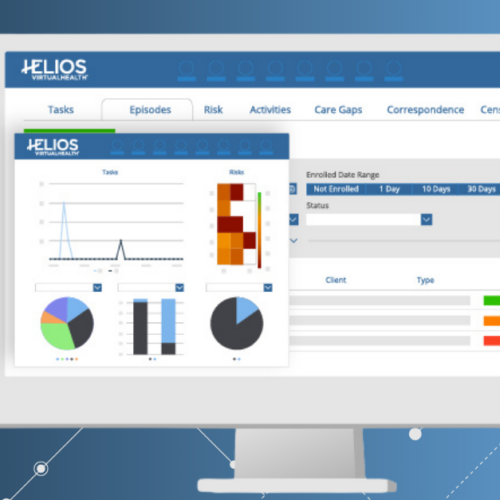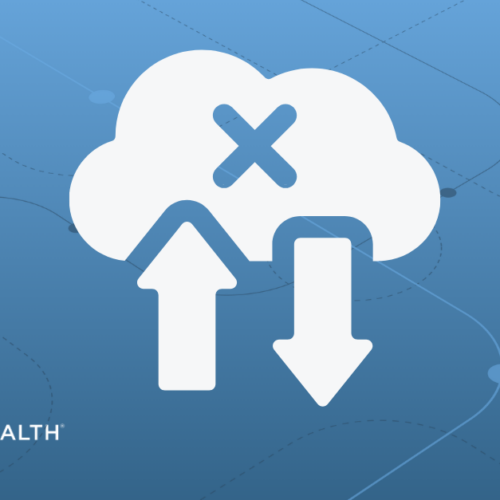This post is the third in a five-part series highlighting top insights from our white paper, Personalized Value-Based Care: Effective Multi-Generational Care Management Strategies. Addressing generation-specific attitudes, concerns, and preferences regarding healthcare, as well as individual non-clinical factors that impact health, is integral to driving member engagement and better outcomes. Here, we explore how organizations...
Category: Value-Based Care (VBC)
Future of Care – Episode 10: The Connected Care Ecosystem in 2024
Enabling a whole-person care approach that benefits members, payors, and providers From member-centered, whole-person care to driving cost savings, better coordination of care, and more efficient processes, this is all part of the connected care ecosystem. Join Robert McChane, VP of Marketing, and Katie Nieto, Senior Program Manager, in our latest Future of Care Chat...
6 Ways Healthcare Payers and Plans Can Improve Their Data & Analytics Initiatives
We’re in the age of big data, and one of the challenges healthcare payers have is to make sense of all the data they capture. From pulling actionable insights to identify and close care gaps to quickly providing the quality metrics and reports needed by state and federal regulatory bodies. For healthcare organizations, integrating data-driven...
How Can Payers Better Support Adults with Behavioral and Mental Health Needs?
Mental health and behavioral health support is a critical need for health plan members. This is especially true for payers handling commercial, individual, and Medicaid populations with members. As of 2024, the National Institutes of Health has found mental health conditions are common in 33.7% of adults aged 18 to 25 years, 28.1% of adults...
How to Automate Care Management & Utilization Management with Configurable Workflows
Use industry-leading rules engines and intelligent workflows for efficiency gains Did you know that HELIOS already has built-in functionality that helps clients automate and streamline care management, utilization management, and case and disease management? This includes everything from automations for assigning tasks to the right staff member and triaging members to letters, risk flagging, and...
Why a Lack of Interoperability is Problematic in Healthcare
Interoperability is currently a big challenge for healthcare organizations using care management and population health technologies. To put it simply, these technologies lack interoperability (or sufficient interoperability). And it’s hurting member care and engagement. Interoperability is also lacking in utilization management solutions, which contributes to delays in authorizations and getting members the care they need....
VirtualHealth & AI: Harnessing AI in HELIOS to Accelerate CM and UM Value
Artificial intelligence (AI) is a trending thing in healthcare, and it’s why HELIOS already has built-in integrations powered by AI that clients can leverage. AI is threaded throughout the HELIOS platform in a variety of ways. Specifically for this blog, we’ll focus on how AI is leveraged to power predictive analytics for population health and...
What to Know About CMS Interoperability and Prior Authorization Final Rule (CMS-0057-F): Quick Facts & Next Steps
For healthcare organizations, CMS-0057-F outlines the modern healthcare system and offers opportunities to improve care and utilization management In the last couple of years, the Centers for Medicare & Medicaid Services (CMS) have been making strides to increase health data exchange, as well as improve and expand access to care. On January 17, CMS finalized...
Understanding Whole-Person Care: What It Is, How to Deliver It
In the last few years, many payors have worked hard to implement a whole-person care approach or whole-person integrated care model. But what does that even mean? What is the definition of whole-person care? How is whole-person care delivered today? And what are the challenges in whole-person care today? Below we dive into all three...
How Rule-Driven Assessments Help Streamline Care Management
Assessments are a critical component of care and case management programs. Assessments help care and case managers quickly identify the health and social needs of members, flag at-risk individuals, and help teams prioritize and effectively handle their caseloads When assessment response data is incorporated into member views and care management workflows, this can help automate...











